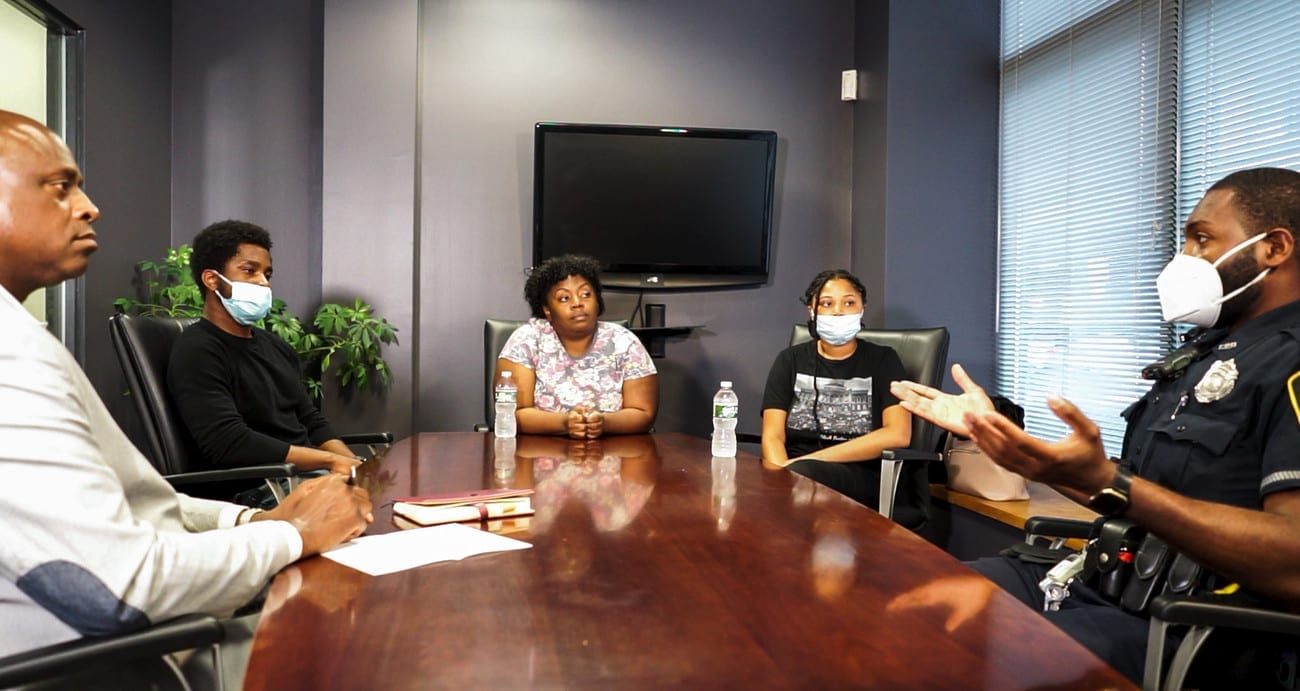LYNN — It has been more than a year since the murder of George Floyd, and the United States is still coming to terms with the aftermath of the events on that day. On the North Shore, that is no different.
In the Item’s office on Monday, several activists and community members gathered to discuss the Black Lives Matter movement, the role of law enforcement and how the community can improve its outlook for residents of color.
“This is a normal (conversation) for me every day, so that’s why it needs to happen,” said Adriana Paz, president of Prevent the Cycle, a community organization focused on systemic change and racial equity. “You need to be uncomfortable until you’re not. You’re going to learn. You’re going to make mistakes. You’re going to say the wrong things. But that should not hinder you. Say them in a space where people are willing to correct you and you’re willing to take that correction and apply it.”
The discussion was moderated by North Shore Community College Interim President Nate Bryant, who was joined by Paz; Kevin Gena, an officer with the Lynn Police Department; Toiell Washington, co-founder of Black Boston; and Elijah Alouidor, a junior at Worcester State University and an NSCC graduate.
Washington said she believes that one of the first things that needs to be done to help people of color is defunding the police and reallocating those funds to other areas, such as education and housing. She said that currently, the police are asked to take on too many roles, and that we can reduce reliance upon them by focusing on the issues that cause crime in the first place.
“They’re not social workers. They’re not counselors,” Washington said. “Police are supposed to be around for intervention, not prevention. We need to focus on prevention. We need to make sure that things are not happening that (the police) need to show up for.”
Gena said that, as one of the only Black officers in the department, he is constantly thinking about the role of law enforcement in the community he serves. While he did not always want to be a police officer, he said that he felt it was the best way to bridge the gap between law enforcement and his community.
“We need to find a better way to get quality people into this job,” he said. “I talk to people and I show up and they say, ‘Finally, someone who can communicate and talk to me.'”
He explained that, despite all of the training that officers receive on how to work with minority communities, if officers grow up in an environment where those conversations are not being had, they will revert right back to their previous ways as soon as they join the force.
Paz expanded on that, saying that in the current system cops are protected when they do something wrong, and departments are not opting to initiate the necessary conversations which make foundational changes in how they operate.
“It’s about, ‘We need to eliminate these officers, and then everything is better,'” she said. “That’s just not the case.”
Bryant noted that over the past year, a younger generation has begun to be the loudest voice in the drive for change. Alouidor attributed the phenomenon in part to the internet connecting activists.
“The world is in a place where everything is on display on social media, and the younger generation sees that,” he said. “They want to do their own research on their ancestry and everything that’s going on in the world, and social media is a big help to us wanting to make that change.”
While social media is helpful, it is also home to plenty of people shouting against the movement. Asked how to address people who say “All lives matter,” Washington made a comparison to pets. If people’s cats started disappearing, and someone spoke up about the issue only to be told that all animals were important, that would be counterproductive.
“It’s not about saying that one life is more important than another. It’s just the simple fact that we’re prioritizing paying attention to a community that is being killed off,” she said. “We’re just saying, “Let’s pay attention to this issue right now, because it’s a big problem that your community doesn’t have.'”

